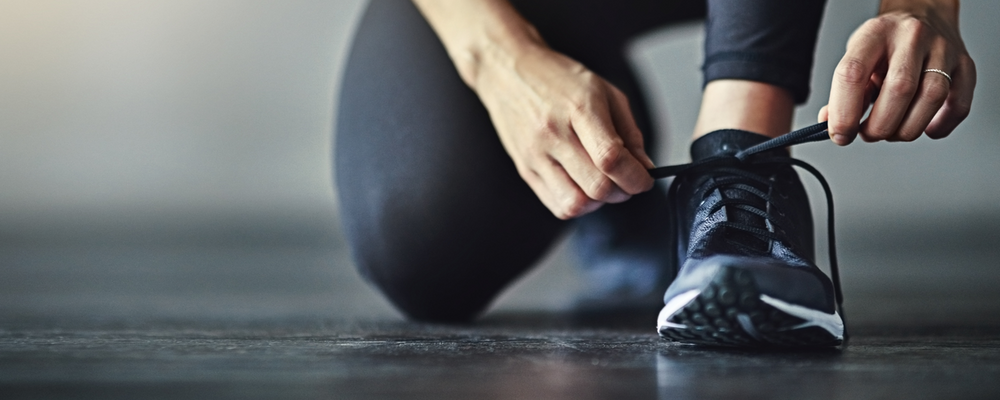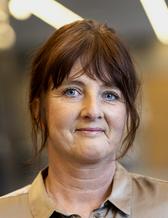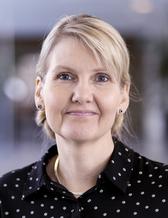
- Home
- News and events
- Find news
- Thesis of the Year in Medicine on association between physical activity and anxiety
Thesis of the Year in Medicine on association between physical activity and anxiety
Malin Henriksson of the Institute of Medicine, Sahlgrenska Academy, has won a Thesis of the Year 2022 award. Three of her findings are that physical activity is an effective treatment for anxiety; low physical fitness in late adolescence boosts the risk of psychiatric illness; and anxiety can affect working memory.

The most striking paper in her thesis shows that physical exercise, both moderate and more intense, reduces symptoms of chronic as well as temporary anxiety disorders. This finding was widely publicized and was the most frequently read news item on the University of Gothenburg website in 2021.
The study, published in the Journal of Affective Disorders, was based on 286 patients with anxiety disorder recruited from primary care services in Gothenburg and the northern part of Region Halland. The participants were randomly assigned, by drawing of lots, to either moderate or more intense group training thrice weekly for 12 weeks.
The results showed that anxiety symptoms showed a striking improvement, compared with a control group who received only advice on physical activity according to public health recommendations. anxiety levels in the majority of individuals in the treatment groups went from high at baseline to low after 12 weeks.
“There was a statistical trend of high-intensity training being slightly better, but both groups — those who engaged in moderate and intense training alike — experienced a distinct improvement. We’ve now also analyzed the one-year data, and the treatment groups still feel better than the control group,” Henriksson relates.
Every third patient seeks care for mental ill-health
Malin Henriksson is a specialist doctor in general medicine employed in Region Halland. In her work in primary health care, she has met many patients with anxiety symptoms or anxiety disorders, and this was how her interest in research in the field emerged.
“In reading studies of how much physical training affects the brain, I was intrigued by. There’s been a lot of research on depressive disorders, but the state of knowledge about physical exercise and its effect on anxiety symptoms was limited,” she says.
A third of patients in primary care have sought treatment for mental ill-health, and many of these people have anxiety disorders. One in three women and 22 percent of men are affected at some point in their lives. At the same time, there is a limited range of treatment options available to doctors in primary care. Pharmaceuticals and “talking cures” based on cognitive behavioral therapy (CBT) are the current recommendations, but drugs can cause side effects and the waiting time for CBT with a psychologist is often long.
“It’s also difficult to treat patients with chronic anxiety disorders. At the same time, we know it’s important to find interventions that work. Anxiety disorders exacerbate the risk of impaired quality of life and work capacity, but also of pain, cardiovascular disease, and premature death.”
Physical fitness in youth influential
Henriksson and her research colleagues also conducted two epidemiological studies, which are included in her thesis. These studies were based on data from the Swedish Military Conscription Register, the National Patient Register, and the Cause of Death Register.
The first study showed that inferior physical fitness in youth raised the risk of developing psychiatric ill-health, including anxiety syndrome, later in life. This applied even when the researchers adjusted for hereditary factors. The second study showed that the rate of mortality from infections and gastrointestinal conditions among young men with mental disorders was up to four times that of their healthy peers.
Henriksson’s thesis also includes work that shows how anxiety affects our cognitive functions. In a study published in BMC Psychiatry, she and her colleagues were able to show that severe anxiety symptoms are associated with impairment in the brain’s executive functions linked to working memory — that is, our ability to store and process information in the very short term.
“Overall, the studies highlight the importance of working to prevent mental ill-health and how important physical activity is for our mental health. Cardiovascular and strength training in young adults can reduce the risk of incurring psychiatric illness. Health care should also prioritize offering physical training to people with anxiety disorders. Mental ill-health in society is increasing, so better efforts are beneficial for the individual, the community and the health care system alike,” she says.
Current guidelines to be updated

Malin Henriksson thinks the most enjoyable part of being a PhD student is belonging to a fantastic research team: the PHYSBE (Physical fitness and Brain — Epidemiological and Interventional studies) group.
“It’s been extremely rewarding and exciting to see how collaboration and hard work can provide key insights. The fact that the results are clinically important also mattered a lot to me,” she says.
Going forward, Malin Henriksson’s plan is to continue her work as a postdoctoral researcher. There are still many important questions she wants to answer, including whether there are any differences between the effects of individual and group training sessions in terms of anxiety symptoms.
“We’re also applying for funds for a study that will introduce our results into clinical practice and, in the long run, update the guidelines for treatment of anxiety disorders,” she says.
Maria Åberg, professor and specialist doctor in general medicine, has been Henriksson's main supervisor. She describes their collaboration as hugely enjoyable and fruitful, even during tough periods.
“It’s been tremendously gratifying to see Malin’s development during her years as a doctoral student, from wrestling with somewhat dry advanced statistical analyses to blossoming by succeeding in completing a highly demanding randomized controlled study,” Åberg says.
Awards funded by donation
The Thesis of the Year prize has been awarded since 2009 and is funded by a donation from Dr. Amt Vestby's Research Foundation. Seven theses are selected annually, one at each of Sahlgrenska Academy’s Institutes and one winner of the faculty-wide Thesis of the Year award for the whole Academy.
TEXT: KARIN ALLANDER | PHOTO: JOHAN WINGBORG
Read more:
Link to the whole thesis in GUPEA
The PHYSBE (Physical Fitness and Brain) research group
Thesis of the Year 2022 at Sahlgrenska Academy
